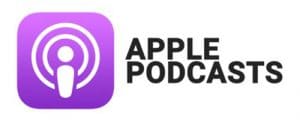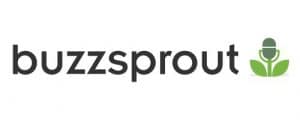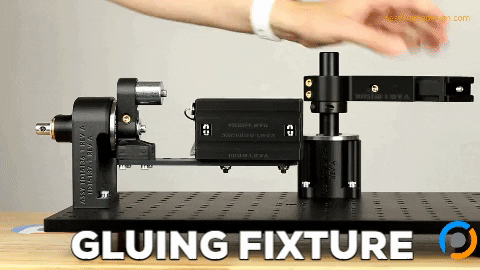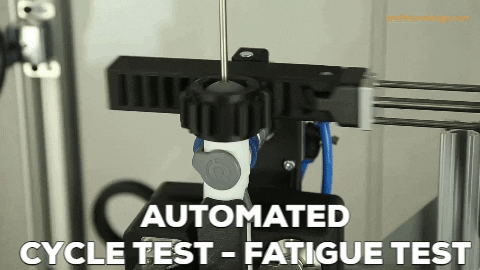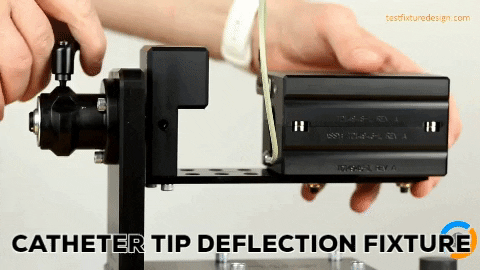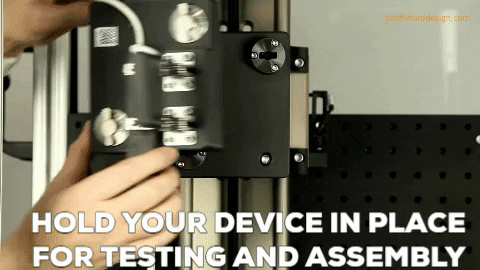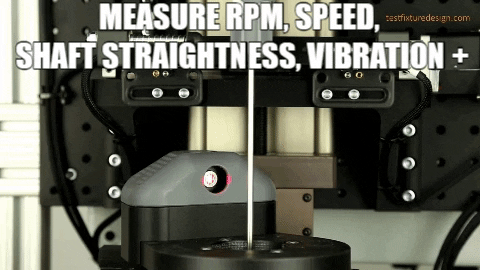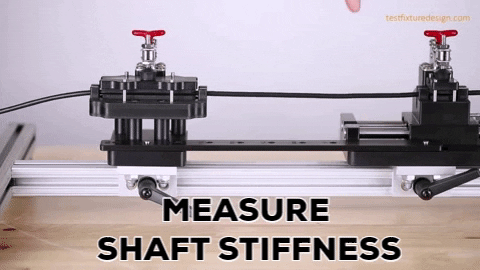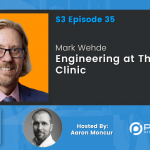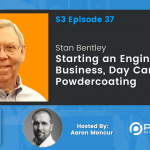Andre Sotomayor | Working with Technicians, Hand Calculations, and Engineering EQ
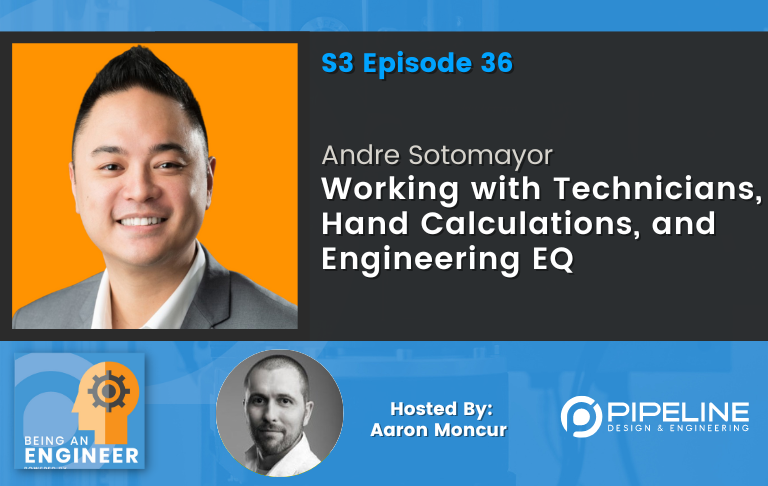
Who is Andre Sotomayor?
Andre Sotomayor worked at GE for nearly 9 years as a design engineer for gas turbine engines before becoming an operations leader in 2017. He currently works at Johnson and Johnson as a principal engineer in their Vision Group, which manufactures contact lenses.
Andre holds a Bachelor’s degree in Mechanical Engineering,
Jocko Willink – Extreme Ownership
EXPAND TO VIEW EPISODE TRANSCRIPTION
SUMMARY KEYWORDS
emotional intelligence, engineer, manufacturing, ge, engineering, technicians, eq, andre, technical, people, part, design, mentor, mom, problem, feel, hand, operations, understand, beam deflection
SPEAKERS
Andre Sotomayor, Presenter, Aaron Moncur
Presenter 00:00
Hi, everyone, we’ve set up this being an engineer podcast as an industry knowledge repository, if you will, we hope it’ll be a tool where engineers can learn about and connect with other companies, technologies, people, resources and opportunities. So make some connections and enjoy the show.
Andre Sotomayor 00:19
I couldn’t I couldn’t piece together why the technicians didn’t like what I was doing. And it really boiled down to not not so much that I was, you know, having a bad attitude towards them, but it was more of I wasn’t including them in that process. And so we were butting heads on a lot of items, and both sides started to shut down over it.
Aaron Moncur 00:56
Hello, and welcome to another exciting episode of The being an engineer podcast. Our guest today is Andre Sotomayor, who holds a bachelor’s degree in mechanical engineering. Andre worked at GE for nearly nine years as a design engineer for gas turbine engines before becoming an operations leader in 2017. He then moved to Johnson Johnson, where he currently works as a principal engineer and their vision group manufacturing contact lenses. Andre, welcome to the show.
Andre Sotomayor 01:27
Thanks.
Aaron Moncur 01:28
All right. So what what made you decide to become an engineer? So that’s a great question. I probably have to give you a little bit of history on on my parents. So my, my mom graduated from UF as as an industrial engineer, and she met my my dad there, and my dad’s a respiratory therapist. And so she actually had me while she was in engineering school, so if you if you thought engineering was hard, you know, without having to raise a child at the same time. That would be possible. Wow, it’s very difficult, I’m sure. But yeah, so I was born in Gainesville. And they lived in married housing at the University of Florida. And probably around the time that I was six, we moved up to Connecticut, my mom worked for a company called General Dynamics. And she was working at their electric boat division, which is actually still there. And they manufacture nuclear submarines for the military. And so I remember, in Connecticut, we lived in this house that was on the top of hill. And my mom had this drafting table. And of course, back in the early 90s, we didn’t really have a ton of, you know, CAD applications the way that we do now. And I remember watching her doing a lot of drafting, we’re just kind of looking at all of the, the drawings and you know, calculations and things like that. I think, in that moment, I know it’s kind of weird to say here that but in that moment, I knew I was going to be an engineer, I knew I was going to do whatever my mom’s doing at the time, right? I wasn’t 100% clear on, you know what that was, but to me, it was just such an interesting thing. And, you know, throughout my childhood, I kind of always gravitated towards, you know, cars and taking things apart and just wanting to understand how they work. And yeah, that kind of just set it in motion for me was is six years old, seven years old, watching my mom, you know, do that type of work. And I would ask her questions on that all the time. And I’d say, you know, what are you doing? Where are you doing it? And she would kind of go into detail, and we’d always have these discussions are. That’s really cool. It’s six years old that you have that curiosity. Yeah, yeah. Do you think it was was your interest? Mostly because it was just your mom? And that’s what your mom was doing? Or was it more? Not necessarily. It was what your mom was doing. But like the content, what she was doing was was more interesting, or maybe some combination of the two.
Andre Sotomayor 04:25
I think it was definitely both. You know, it. It was obviously something that I was interested in just because it was so mesmerizing to see all these different tools that she was using right? Calculator, all these different stencils for circles and ellipses and a lot of that hand drafting knowledge that you’d have to do in that time. And, you know, I look up to both my parents and I would say that we always joke around that you I probably get most of my, my technical design from my mom. And then I get a lot of my, you know, funny and outgoing personality from my dad. But I would definitely say, you know, watching her do that. And then I guess as I got older though, I, I wanted to do more mechanical things, and maybe probably towards high school when I was starting to drive. You know, back then, you know, fast and furious that come out. And that was like a big thing. Like, okay, I want to do all these things in my car. And I learned how to do a lot of the mechanical things, you know, that age is kind of trial and error. Yeah, but it was something that I that I enjoyed, and it’s something that I that I still enjoy now.
Aaron Moncur 05:46
Terrific. Now, even these days, there aren’t that many women in engineering. I imagine that was even, you know, more so the case back then, did your mom ever talk about what it was like to be a woman in engineering 20, 25 years ago?
Andre Sotomayor 06:01
You know that? That’s a great question, because I don’t think her and I ever really talked about that before. But I know that I loved your Oh, there there any factoring submarine. So there’s, there’s, you know, a lot of design work that’s going on there. But then the actual manufacturing of it, I know, is primarily what she was over as an industrial. And I do remember having conversations with her at one point, maybe it wasn’t, you know, six, or seven, and maybe later on in life here. She would say that, you know, she would have to, I guess, do certain things on the floor and kind of build a reputation on the floor with the technicians and operators, I’m rebuilding the soaps. And I found out later on in life, that that was such a key element of engineering that my mom had given to you years and years before, but I didn’t understand it at the time that she was giving. So it’s, I would agree that you know, there there are definitely not a lot of women in engineering at that time. And we’ve obviously gotten much better at that. Now, and I don’t think she ever really talked to me about stuff like that. I’ll have to ask her, though. And there you go. pick her brain on that.
Aaron Moncur 07:25
good topic for the next family dinner. Well, can you share maybe a one to two minute summary of your background? You know, where did you start in engineering? And what were a few stops along your professional path? And where are you now?
Andre Sotomayor 07:41
Sure, yeah. So I guess, you know, like I said, from from a young age I, I always gravitated towards engineering and I kind of knew early on. So, you know, throughout high school, I made sure to kind of take the right classes for that. And my family, you know, I was born in Gainesville. So we were huge Gator fans. And when I applied to colleges, I actually only applied to the University of Florida, I did not apply anywhere else. And it’s a competitive school to get into. And you know, at that time when I graduated, it was indifferent. And I actually didn’t get in. And so I was really bummed out about that. And yeah, oh, no, you know, I was thinking man, there’s, there’s, there’s no way that they’re not gonna let me. And so I actually stayed in town. And I lived at home and I went to the community college here in Jacksonville. And I said, I’m going to just finish up my AAA, I’m going to take all the prerequisites and then apply to the College of Engineering and transfer students. And so that’s what I did. I finished up Community College and finished up engineering virtually at UF, and I did a couple of internships with Kofi called Paulson. And at the time, I was basically a structural engineer on the mechanical side for gas turbine parts and things like that. That’s kind of what led me to get the job initially at GE. So around 2009 was, you know, we were going through kind of a recession, in a way kind of bled over into oh nine and I was trying to get back to Austin, but they were kind of going through a rough patch there. But my mentor who took me through two internships there had recommended me to one of the engineering managers at GE. And so at the time, GE was actually a competitor to Olson and so, I interviewed at ge and ge I accepted a job there, basically out of school and I was a structural analyst. So I was basically doing FAA work. And I was part of a team that basically analyze the clearances between rotating parts of a Gaster. And the static parts. And so it was heavy, heavy, NPI structural work at finite element analysis, static structural and transient thermal things. I would say around 2015, I, I had already gotten married. And my wife and I had the time we were thinking about how to get back home in Jacksonville. And there was a there was a manufacturing engineering position open, still with GE, but it was with a different division. And so I took that job at GE Oil and Gas to come back home. And I was basically a manufacturing engineer, starting a new facility there. And we were closing down a couple of plants across the United States and bringing everything into Jacksonville. So I helped start that facility. And maybe around my third or fourth year, I decided to take a role in operations. So as a an operations leader, which is kind of like a production supervisor. And then I took a role here at j&j, going back to the technical side away from operations. And I started as a lens fabrication selling gene, and then did that for almost three years, and then got promoted to engineering manager or consulting.
Aaron Moncur 11:50
All right, terrific. Thank you for sharing that. What, what has been one of the most technically challenging projects that you’ve worked on? And what did you learn from it that other engineers listening to this episode might find valuable?
Andre Sotomayor 12:07
So one of the more technical problems that I’ve ever had to solve, and it kind of goes back to what my mom was saying earlier with the whole manufacturing thing, and building relationships on the floor. In the middle of my career, when I, when I took that job as a manufacturing engineer, GE Oil and Gas, there was a technical problem on on one of our, I guess, assembly lines. And we basically, were building these components by hand on pallets. And it was an ergonomic nightmare. It was something that was not efficient at all. And one of the ideas that we had was, how can we make this more like a moving assembly line? So if you look at other companies like Ford, or even Boeing, right, these assembly lines that are highly, highly sophisticated, are actually moving as the product is moving as it’s being manufactured? And so we took that idea and said, Okay, what, what do we need to design so that they’re not building this valve on the floor. And I went through a couple of design iterations and basically designed a scissor lifts that had all the components that they would need in front of them organized, with all the tools at each station. So what we did is we took this singular assembly operation, and we cut it up into different sections of the assembly. And we were basically mimicking an assembly line. And all of it was manual labor. But having it kind of designed with the technicians, and building that from the ground up was, I would say one of the most challenging things I’ve ever had to do at the time. And what’s interesting is it’s not so much the technical piece that was challenging it was it was recognizing that the technicians have to be a part of that process. And if we didn’t include them as part of that process, it was it was doomed to fail from the very game. And so getting the technician by and right, having constant discussions with them on how to tweak the design, what the assembly line layout should be, who should do which operation, which operation makes sense to do first or second or third, right? All of those different technical discussions and components to do Design, those had to occur, you know, with with the assembly operators and technicians, and I had to build up this relationship with them as their manufacturing engineer to, to get all of that together. And it was such a key element of that entire project. But it was also the most challenging because you’re working with a lot of different personalities and, and, you know, team dynamics to get it done. But I would say that was definitely one of one of the more challenging things that we had to do.
Aaron Moncur 15:38
That sounds really fun to me. I mean, partly because your your customer is so close to you, you know, it’s like this person that you see on the floor all the time. And you probably got to see firsthand how it improved the the the work experience of, of the technician at the end, how long did that process take? And what what was the what were the technicians feedback at the end when they implemented this new process.
Andre Sotomayor 16:06
So I think the design of it in take too long, it was probably over the course of these six to eight months of design. And that was just kind of going back and forth with vendors and specking out different scissor lifts. And then, you know, we had a lot of like main and Kaizen events with the technicians to get their feedback on what is RGB. And to be honest, as a mechanical engineer at the time on that project, the design really, it really came from the technicians, right? So I would go to the floor, and I would say, what would you want this to be in perfect world, because a lot of times the technicians, you know, they, especially manufacturing, they have, they have awesome ideas, I would say 90% of them are our ideas that we should implement. And really, they just need a manufacturing engineer to come in to help bring that idea to life. And because they were part of the design, though, a lot of that feedback was was very positive. And I think even after I’ve left, I have a few contacts that are that are still in that plan. I’ve heard recently that they still use it. But they’ve made some changes right over time, which is great. You always want to happen to us improvement or any classroom. So maybe they see something that wasn’t quite working, right. And they just improve on it. And they, you know, collectively come together and say this is this is what it should be and then involve engineering as needed. Right?
Aaron Moncur 17:43
Yeah, great example of how engineers and technicians should be working together. What’s What’s one of your favorite technical skills that you’ve developed as an engineer, and how have you used that skill to succeed in your job,
Andre Sotomayor 18:00
I would have to say, hand calculations. So when I was a structural analyst at GE, our, that Job was extremely technical, it was very deep into the world of finite element analysis. And we were solving very complex, very nonlinear models. And I think one of the things that God taught me in that role was the value of understanding the physics of the problem. And a lot of the chief engineers would kind of hound into the younger, you know, generation that would have to go and do a designer here and present something that, you know, the FAA art is easy, you have to be able to explain to me and paint the picture of what the design is or what the analysis is. And they were very keen on not showing any finite element results without hand calculations. And so the hand calculations can be as as simple as maybe it’s a beam deflection, maybe it’s maybe it’s a thermal deflection, right. And as long as you can calculate those by hand, it gives you a sanity checks are referenced against your finite element model. And I always thought that, that was such a strong technical characteristic to have something that I even after I left that role of something that I I constantly did in every role after that, because a lot of times you’ll see a problem in front of you and if you just take the time to kind of struggle through a hand population and and give you That sanity check on what you’re looking at. It could be a night and day difference in the understanding of the problem.
Aaron Moncur 20:09
Yeah, I have a spreadsheet that I’ve built over the years. And it’s it’s a semi automation for hand calcs. You know, things like buckling loads and rectangular beam deflection and circular beam deflection and things like that we’re have list of materials on in one column that I can pull in modulus of elasticity and different tensile yield strengths, and plug in, you know, the width and depth of the beam and things like that. Just plug in a few things, simply and very quickly get an answer. And it tells me if there’s going to be plastic deformation or things like that. And that’s been super useful over the years
Andre Sotomayor 20:54
hand calculations are probably the most useful thing. And I would say, for a lot of engineers, that, you know, they go through school, and they say, I’m never going to see that again. You, you will see it again. Right. And, and a lot of times, I do that a lot with the interns, when they see a technical challenge on the floor, and they try to develop a solution around it also, then what does that look like to you? What do you think that looks like? And they’ll look, you know, they’ll look at the machine? And they’ll say, I don’t know. And I say, doesn’t that look like a cantilever beam? Have you ever seen that before? They say oh, yeah, I did see that. Right? I saw that in statics or I saw that and mechanics. And I say, Well, do you know how to calculate the deflection for that? Yeah, we can, right? So we can you can apply those physics and real life and relate it to something, you know, back from, from school to Okay. Do you want to feel comfortable with the solution that we’re going to put in based on a hand definition? And that should be you know, 80 85%?
Aaron Moncur 22:01
Yeah, well, solving technical problems is for sure, a really important part of an engineers responsibility, but but being adept at solving people skills or soft skills challenges is also a really critical part of any successful engineers path. You had used the term engineering EQ with me during a conversation some months ago. What what is engineering EQ? What can you say about that?
Andre Sotomayor 22:29
So, engineering EQ is basically emotional intelligence. And I guess emotional intelligence. It doesn’t even need to be related specifically to engineering, but emotional intelligence, I like to kind of break down into two categories. It would be the ability to control your own emotions, and the ability to read other people’s emotions, and then almost change your approach if you need to, based on what you’re reading in real time. I think emotional intelligence is basically those those two items.
Aaron Moncur 23:08
Okay. Are there any stories that you can share with us that illustrate the importance of having high EQ as an engineer?
Andre Sotomayor 23:18
Yeah, so I had a mentor, who’s still a great mentor to me, today’s name is Brett. And I met him actually, when I became a manufacturing engineer at GE Oil and Gas. And he was very keen on emotional intelligence. And so I have, I have a story here that him and I joke around about a lot. And early on in my career, I actually didn’t understand emotional intelligence as much as I do now. And it’s something that I tried to push on a lot of the newer engineers and interns to, to, you know, harness that understanding a lot earlier in life. And there was a story where I, I was, I was an operations leader at the time. And so I had a whole group of technicians recording to me, and I had a project manager who was really pounding us for some deadline. And he emailed something, and it just kind of set me off. And I feel like a lot of people listening can probably relate to something like that in the corporate world where you get this email. And it’s, it’s, it’s like the worst form of communication, right? Because you don’t have any context. Right? It’s very difficult to understand the tone. And I took it the wrong way. And I thought to myself, I’m going to I’m going to email a response back to this project manager and tell him you know, how I disagree and, and obviously, my approach in that moment was be full of, I would say the wrong emotion. And I hit send. And I felt great about it. And I hopped in my car and I went. And I would say like three hours later, I get a, I get a text message from like a GE executive, over and over the plant said, hey, I want to know more about what’s going on here. Because what ended up happening is the project manager had replied or forwarded it to him and say, hey, you know, there’s there’s this hot head on the factory floor, what’s going on here. And man, and Brad’s advising in that time was, you know, don’t, don’t respond to that, let’s, let’s meet him tomorrow face to face, let’s, you know, smooth things over. And he told me later on, he said, I have never regretted not sending an email, I thought, I thought that is wise advice is an awesome piece of advice. And I still kind of regurgitate every now and then. But in that moment, I was unable to do both of those things that I referenced earlier. So number one, I wasn’t able to control my emotions in that moment. And because it was through email, which again, I feel like is one of the worst forms of communication, I couldn’t even read his emotions, I could only read the text on the computer. And so I made a decision that was highly emotional at the time for me. And, you know, it ended in embarrassment, right. And I feel like I feel like that’s, that’s a large part of it. Because for engineers, you know, we like to solve technical problems. And, and, and that part is great. But when you’re not getting along with your teammates, or you’re not getting along with other groups or other engineers, it really has a negative effect on the entire outcome of whatever problem you’re trying to solve. So let me let me actually put it in another in another way. Are you a fan of Star Wars.
Aaron Moncur 27:15
I love Star Wars. So
Andre Sotomayor 27:17
I love Star Wars so much. It’s a big part of my life. So I’m going to kind of geek out a little bit of Star Wars and tie that into motional intelligence. So in episodes one, two, and three, we see and again, kind of grow up from a boy in into becoming dark hair. And have you seen any of the new I know V series that came out recently on Disney plus?
Aaron Moncur 27:46
I have not
Andre Sotomayor 27:47
so Kenobi that series is in between, I guess, episode three, and A New Hope, which would have been the original so and Okay. Throughout mannequins life, Obi Wan, who’s his, his mentor, was always trying to teach him emotional intelligence. And you can clearly see it in a lot of the episodes where, you know, and again, it’s kind of got this almost this arrogant personality, right? Like, I know how to do that, right? I suppose. Yeah. And I could do that I can do that. And, and Palpatine. The, the Emperor actually took advantage of that. He knew that Anakin had had weak emotional intelligence in that way, where he was able to kind of trick him into believing that hey, you know, the Jedi Council wasn’t, wasn’t gonna do what they needed to do to promote you to a Jedi. And the Jedi Council probably had their own, you know, issues at the time, too. But just in the topic of emotional intelligence, Obi Wan was really trying to drive that home. And so, that last episode of or that last scene of Episode Three, you see all of that come out. And even in the newer Kenobi series, or even in episodes, four, five and six, when you see Anakin a stark Vader, he’s a lot more subdued, but he still has trouble, like harnessing his emotions in that way. And to even compare that to Kylo Ren in the, you know, in the more recent Star Wars movies Kylo Ren has zero emotional control, right? But there are scenes of Kylo Ren just going crazy in a control room and using his lightsaber to just destroy everything right? Over what right, just bad news. And so I always like to look at Star Wars for some of those types of emotional intelligence cues just because it is a deep underlying theme in that whole Yeah,
Aaron Moncur 30:01
That’s a great analogy that’s perfect for a group of engineers listening to this podcast, that will help a lot of people relate to this. And it was interesting how you brought up the point about this is going to end up being a podcast about Star Wars here, but about Palpatine level leveraging Atkins lack of emotional intelligence, right to kind of manipulate him into doing things. And I’m not saying that people out there are going to be manipulated this way. And that, but you might be a little bit more subject to that possibility. If your emotional intelligence isn’t high, maybe not not seeing reality for what it is. And just, it might be more possible for your your reality to be warped by what someone else might be trying to tell you. It really
Andre Sotomayor 30:53
is. And Brad, actually, you know, kind of going back to that story. Brad had actually told me at another time, where he said, You know, every, every decision that I’ve ever regretted, had been in an emotional state. And when I reflect on my life, I agree. And it’s part of the reason why why raising children can be so difficult is because children don’t have the mental capacity to, to understand how to regulate their emotions. But when you’re talking with a three year old, or a five year old, they get a hall pass for that, because they’re three and five. Right? Yeah. So, you know, as adults, we, we still struggle with a lot of that emotional regulation of of that, you know, of our own selves, right. And as a parent, I see that in my kids all the time, you know, and what’s what does a child do when they can’t regulate, it will scream or cry or anything like that, and it becomes frustrating. But even as as adults, right, we, we have all of these discussions and meetings in the corporate environment. And sometimes you can see a lot of other people kind of acting the same way. It’s just the inability to, to control their emotions, right? Or read other people’s emotions and then modify the verge.
Aaron Moncur 32:25
One, what what if an engineer doesn’t know if he or she has high or low emotional intelligence? That might sound silly, but I’ve known some some people in general, including engineers, who, I don’t think that they realize that they don’t have very high emotional intelligence. Are there signs that that we could watch out for, you know, if I’m one of these individuals who’s like, I don’t know what my emotional intelligence is probably great, but maybe it’s not? Are there signs that I can watch out for it to, to help indicate to myself that oh, well, actually, maybe it’s not so great. And I have some room for improvement here.
Andre Sotomayor 33:07
Um, so I, I didn’t really recognize that until later on in my career. So when, if I look at my entire career, I would say the beginning part of it when I was doing a lot of structural work. I feel like that was the part where GE taught me how to be a nuts and bolts technical engineer. But I’m not sure that I actually picked up a lot of EQ characteristics at that time, it was only when I went into manufacturing, did I understand that. And I understand I had to learn that lesson the hard way. And what I mean by that is, when I when I came into that role initially, it was, you know, sort of, so my wife and I could come home back to Jacksonville, but I was basically trying to find any, any role in engineering that would allow that. And when I took the manufacturing engineering role, a lot of the people in in, you know, I guess, research and development at the time, were like, you’re crazy to go to manufacturing. And I was willing to do it to get closer to my family. And when I went into that role, I just, there was a whole nother world for me. And I didn’t understand the value of emotional intelligence. I didn’t understand the value of understanding what the technicians were going through and how to empathize with them. To me, it was just, you know, another job I’m here back in Jacksonville. And you know, now I got this technician that’s asking for this, that and the other like, how come they can’t just figure that out? And I don’t know if I had any kind of signs to tell me that other than having mentors that I saw that had strong EQ, even though I didn’t really know what that was at the time. And I had gone through some leadership trainings at ge and ge actually has really great leadership classes and things like that, that they do internally. And that’s when I started to realize that, you know, going to go into some of the seminars and classes that okay, maybe my approach here isn’t the greatest. And when a group of technicians that I was supposed to support from a technical perspective word, when they when they stop asking me for help, I realized that I might have been a problem all along. And I think for me, that was a big turning point that, okay, I need to change my approach on this. And I had to seek the help of other mentors that that had very high EQ to show me how to do that.
Aaron Moncur 36:05
I think that’s a really, really strong indication there that if people aren’t asking you for help, might be a sign that they don’t, they don’t want your help. They don’t want to have to deal with you to get there.
Andre Sotomayor 36:22
They feel that I’m not gonna pick up the phone.
Aaron Moncur 36:25
Right? Yeah, yeah. Okay. Well, that’s, that’s a great one. How about developing EQ? What are some tools or strategies that you found useful in developing and improving one’s emotional intelligence? So are you familiar with Jocko willing? That is, I am yeah, so
Andre Sotomayor 36:47
Jocko does a lot of the motivational speaking and things like that. And I got turned on to one of his books called Extreme Ownership. And I love that book, I, it’s something that I’ve kind of gone through a few times, and I feel like I learned something new every time. But for me, that was almost like a life changing perspective on emotional intelligence, and how to how to get better at it. And for those that haven’t read the book, Extreme Ownership, it’s basically about owning everything for yourself. And so one good example of that could be maybe you have somebody that’s really difficult to work with. And they don’t provide what they need to provide to you at that time, right? Like, let’s say that’s in a corporate setting. And instead of saying, Well, this, this person is that fault. You then say, What can I do better, to make a better outcome for that situation. And so when we talk about emotional intelligence, I think a key part of that is more self reflection. To understand where you fall into that picture, and how you can do better, and the way that he captures that and look, I think is just so it’s almost mesmerizing. And it’s also, it’s also counterintuitive, because it goes against the grain of what people normally want to do. But for me that I like that as kind of a tool, you know, that book, and some of his podcasts, have really given me a new perspective on things. And then I would say, as another strategy, I like to, I like to hold on to mentors. So if you ever find a mentor, that’s, that’s really good. You have to, you have to stay in touch with them. And so that’s something that I strive to do with a lot of my mentors, because I think that is kind of awake and grounded.
Aaron Moncur 38:58
That’s great. Those are both very actionable. This seems like a good place for a quick pause to share with our listeners that Team pipeline.us is where you can learn more about how we help medical device and other product engineering or manufacturing teams, develop turnkey equipment, custom fixtures and automated machines to characterize inspect, assemble, manufacture and perform verification testing on your devices. Today we’re speaking with Andre Sotomayor. And Andre you had told me during a phone call earlier that your words it doesn’t matter if you’re the smartest person in the room if everyone thinks you’re a jackass, which I thought was hilarious. Can you share? I think we all kind of get the gist of that. But share a little more about what you mean by that.
Andre Sotomayor 39:50
Yeah. I think a lot of my co workers have heard me say that so many times. And, you know, every time we we interview We like to focus on hiring for, obviously, the right fit, but hiring for attitude. And, you know, when you look at the technical things, right, those are, those are generally the things that are very black and white, we can teach those things. But an attitude is a lot harder to coach, and to change. And fundamentally, it’s kind of who you are at some point. But if you’re in a room, and you’re going over a technical problem, but people cannot get past your attitude or the way that you’re treating others, right, it really doesn’t matter. And you can have the best idea on the planet. And if if you’re not able to articulate that idea, to that audience at the time, because because of the fact that you’re being a jackass, right, it won’t matter. And that’s actually what was my problem, you know, in manufacturing engineering initially was, I had all these technical things, and I wanted to put it out on the floor. But I couldn’t, I couldn’t piece together why the technicians didn’t like what I was doing. And it really boiled down to not not so much that I was, you know, having a bad attitude towards them, but it was more of, I wasn’t including them in that process. And so we were butting heads on a lot of items, and both sides started to shut down over it. So even if I did have the best idea at the time, I couldn’t even communicate it correctly, you know, to the to the operations folks so that they could absorb what I was saying. And so it just kind of goes back to having the right attitude. And being able to honestly being able to compromise on certain things, too. Because that typically is the roadblock that you would see in a corporate setting is, oh, well, I’m working on this, and I’m gonna push back because I I don’t want to compromise. A compromising is a big part of it.
Aaron Moncur 42:16
Yeah. Let’s say that you had a really technically talented engineering, maybe it was you back when you started in the manufacturing group. But but he or she wasn’t very good at the soft skills, but wants to improve, you know, maybe there’s been a meeting, it’s been shared with the individual that, hey, you’re technically great. But communication wise, skill wise, you’re not doing so hot, you need to improve what type of training program or you know, what kind of like protocol or process might you implement to help the individual improve in that area.
Andre Sotomayor 42:50
So I made reference to it earlier, but G actually had some really good leadership programs and training programs there. But I think even more grassroots is doing public speaking. Public speaking is one of those things that you know, you either you either can do it, or you absolutely hate it, or, or kind of somewhere in between, but that’s usually rare. But public speaking, I think is one of the things that puts you in that situation, to improve the emotional intelligence at the time, because if you’re if you’re talking in front of a large audience, you know, you there’s probably hundreds of things that are racing through your mind. But if you’re if you’re doing that constantly, I feel like you’re you’re almost sharpening your EQ a little bit because you can read the audience a bit. And kind of adjust how you’re delivering a message based on the feedback of the audience. And all of that feedback is nonverbal, too. So I think that’s, that’s one thing that you can do. And then honestly, manufacturing is, is ripe for all of these kinds of interactions. Because when you’re in manufacturing, that part of the supply chain is just so dynamic and diverse. You’re always talking with a different personality, a different job description, somewhere in that supply chain, that it’s the perfect place to really hone in on those skills. If it wasn’t for going into manufacturing, I’m not sure I would have been able to really hone in on a lot of that. But manufacturing almost accelerates it for you because you’re, you know, essentially drinking from a firehose, and in that environment, you’re just having to deal with so many different personalities and what’s
Aaron Moncur 44:50
interesting, okay, that’s, that’s great. Well, I’m going to depart from the EQ topic and move on to a couple other things. Questions and then then we’ll wrap things up in a few minutes here. What what is the most scared you’ve ever been in? And feel free to take that from either a personal or professional standpoint? And and then what did you learn from that experience?
Andre Sotomayor 45:18
So, so I have two kids, I have a son is who’s five, his name’s Tristan and our daughter Isabel is three. And I can’t even remember what was going on. But my wife, Abby had our son. And they were somewhere. And I was at home with Izzy and I kind of got sidetracked. And, you know, when you especially at, you know, the age when they become mobile, you have to you have to keep one one eye on them at all times earlier, and I got sidetracked with something. And I could not find her. And I knew that she wouldn’t, you know, just go out of the front door. But she she’s obviously smart enough to be able to do that if she wanted to. And I have this insane panic attack in that moment, because I could not find my daughter in our own house. And so I’m going everywhere, and I’m looking around, I’m in the backyard. I’m looking in the front yard, and I’m on the verge of tears almost like trying to figure out where she is. And the only place that I did not look was upstairs because we were we were downstairs at the time. And we had this this baby gate to you know, lock her from going upstairs. Yeah, of course, she climbed over without me knowing. And I guess she was she was in the, in our bedrooms. And when I found her I was just so relieved. And I can I can only imagine, you know, what, what I would put my parents through at that time, but just just that feeling alone that I didn’t know what to do at that time. I it was probably one of the most scared that I’ve ever been because just the thought of, of losing her or you know, it you know, either either one of our cases was just, it was insane.
Aaron Moncur 47:28
Yeah, it’s funny, I’m not fat, haha, funny. But how your mind? It goes to dark places really quickly, right? Like, you know, you can’t figure something out. And all of a sudden it’s it’s death and destruction. It was it was it was a large wave of I went from Anakin all the way to Kylo Ren, immediately. And was there anything in particular that you pulled from that experience that was helpful for you and later situations in life? I’m not sure other than I need to I need to keep a better eye on her when we are doing things around the house. But it was it was just one of those things where, you know, I was sidetracked? Yeah, yeah. Well, thank you for sharing that. It’s always really, I don’t know, seeing the human side of people, right? Yes, it’s helps us all feel connected, I think, well, let’s see what what are some things that you do to keep yourself engaged and motivated at work?
Andre Sotomayor 48:34
So I’m an engineering manager now. And I think when, when you take a leadership position, one of your main goals should be to create more leaders. And so when I look at people on the team that are that are growing in their, you know, technical side and on their EQ side, and I can see the growth, that part of it is awesome. And for me, it it’s a large motivator, because to me that that means you know, we’re doing something right. And just watching that, that process grow over time is awesome. Another thing that that keeps me motivated to is influence. So what I mean by that is when remember how I said I realized there was an issue because nobody was coming to me. Yep, the opposite of that is having influence and an influence can be you know, it could be technical. It could also be non technical. But when people are coming to me and they’re saying hey, you know, I’m I want your advice on something maybe it’s maybe it’s a mechanical thing or not. or if somebody is coming to me specifically because they want my influence on certain topic within the business. To me that that motivates me, because it tells me that I’m keeping those skills sharp, if you will. And it’s something that, you know, I enjoy.
Aaron Moncur 50:23
I think it’s, it’s largely human nature to feel fulfilled when we’ve been able to help others, we’re influenced them in a positive direction, I feel the same way. You know, I think probably my happiest days at work were our days when I’ve been able to help someone else and do what what I feel or what others have told me has been some kind of meaningful impact for them, not necessarily for me. Yeah, I agree. Let’s see, what, what are one of the one or two of the biggest regrets that you have, if any, in your career to date.
Andre Sotomayor 51:00
So I think one of the things that I regret for sure is, probably even before my career started, I didn’t, I feel like I didn’t apply myself 100% The way that I should have when I was in undergrad. And I was just so eager to, to graduate. And I think part of the reason why I struggled with emotional intelligence early on, it was just based on basically not being mature. And I think for me, you know, going to a community college first was, was actually a blessing because it allowed me to stay home, save a little bit on tuition, but also it allowed me to mature. And I didn’t, I didn’t always apply myself, you know, the way that I, I should have if my mom is listening to this, you would agree with that, right? That’s something that they always told me in school, right? Like, I never see you studying, and you’re not, you know, you’re not applying yourself. I wish that I had done more of that. And as it relates to my career, I am actually studying to take the PE exam. And I wish that I had done that a lot sooner. And I wish that I hadn’t taken the FE exam when I was, you know, closer to graduation. So the FE exam would have been a lot easier, I think to pass with, with all that knowledge, you know, fresh in my in my head. I did not take that exam until 2021 Recently, and like I said, I’m currently studying for the PE now, but I wish I would have done that a lot sooner.
Aaron Moncur 52:44
Great. Okay. Well, one more question. And then we’ll we’ll wrap this up here. What is a tool that doesn’t exist, but that if it did exist, what you think would allow engineers to do their jobs, you know, faster, better, cheaper. So I think it would be teleportation. And the real this is interesting. They’re not not an answer I’ve gotten before. Tell me more about this.
Andre Sotomayor 53:09
Yeah, here. Here’s, here’s my reason. So especially with, with COVID, when we went through that entire process of like remote work was one of the more difficult things. What made it very difficult in that time was was communication. And I always felt that communication was the number one issue no matter where I went, no matter which will add, it was always the ability to just communicate what what you were trying to do or what the problem was, and what solutions. And remember, I said that emails are the worst communication tool. Yeah, I would say in order, you know, emails, the worse. Texting is even worse than that. But if you can make a phone call that’s a little bit better, because I can I can read some of your, your tone and inflection. Video Chat is even better, because I can see you now. But in person is typically the absolute best form of communication. And when we drive more of the in person, it helps so much, especially for those people that work in manufacturing is you can be out on the floor and you can just go see the problem through the technicians eyes by physically out there. And if we had teleportation, I could teleport to the floor instantly, or I could teleport to a supplier in Japan or teleport to Ireland and talk to my counterparts there instantly, and fix all of the communication issues in between because of the forms of communication that we’re using.
Aaron Moncur 54:59
That’s Great seat, you get to access the most effective form of communication without any of the time delays traditionally associated with it, and I can still be home by dinner. Right, right. Yeah, that’s, that’s terrific. That’s a great answer when I have not heard, nor was I expecting but a really good one. I could also teleport to any any vacation spot that I wanted to. Well, if you invent that, I think you’ll you’ll do well. Yeah. All right. Well, Andre, this has been a real pleasure. Thank you so much for spending some time with me today talking about all of these things. How can people get a hold of you? Um, so I’m pretty active on LinkedIn. That’s probably the best way you can message me there or connect with me there. Great. Great. And I’ll put a link to your LinkedIn profile in the shownotes. Well, thank you so much again, Andre. I really appreciate your time.
Andre Sotomayor 55:58
Yeah, absolutely.
Aaron Moncur 56:03
I’m Aaron Moncur, founder of pipeline design, and engineering. If you liked what you heard today, please share the episode. To learn how your team can leverage our team’s expertise developing turnkey equipment, custom fixtures and automated machines and with product design, visit us at Team pipeline.us. Thanks for listening
We hope you enjoyed this episode of the Being an Engineer Podcast.
Help us rank as the #1 engineering podcast on Apple and Spotify by leaving a review for us.
You can find us under the category: mechanical engineering podcast on Apple Podcasts.
Being an Engineer podcast is a go-to resource and podcast for engineering students on Spotify, too.
Aaron Moncur and Rafael Testai love hearing from their listeners, so feel free to email us, connect on Facebook, Twitter, Instagram, and subscribe on Apple Podcast and Spotify!
About Being An Engineer
The Being An Engineer podcast is a repository for industry knowledge and a tool through which engineers learn about and connect with relevant companies, technologies, people resources, and opportunities. We feature successful mechanical engineers and interview engineers who are passionate about their work and who made a great impact on the engineering community.
The Being An Engineer podcast is brought to you by Pipeline Design & Engineering. Pipeline partners with medical & other device engineering teams who need turnkey equipment such as cycle test machines, custom test fixtures, automation equipment, assembly jigs, inspection stations and more. You can find us on the web at www.teampipeline.us
You’ve read this far! Therefore, it’s time to turn your headphones up and listen now to this episode to learn all these. Don’t forget to tell your friends who might like this too!

